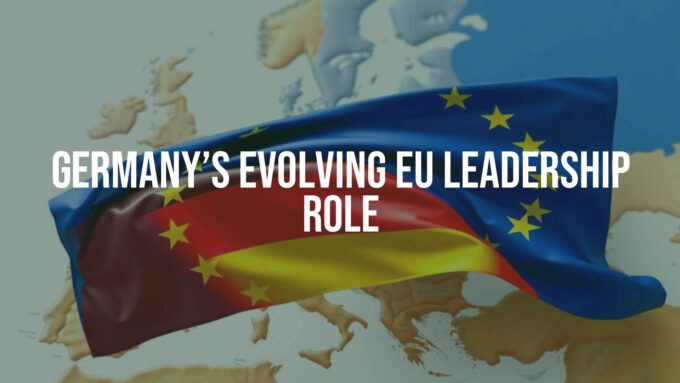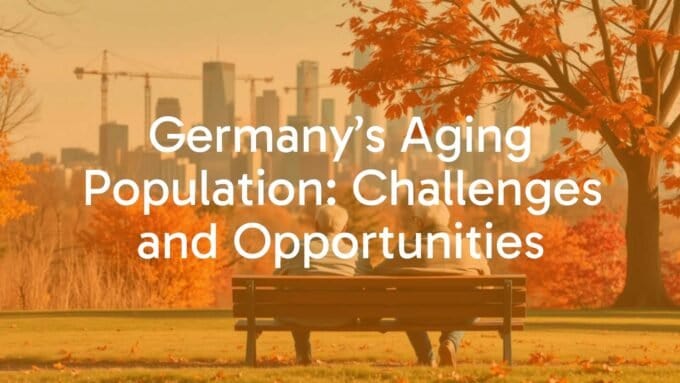Germany, known for engineering strength and a strong economy, is a leading place for tech innovation. But what are “German innovation hubs,” and what do they do? These hubs are active networks where new ideas are supported, developed, and turned into real products and services. They bring together startups, big companies, research groups, and public agencies. Their aim is to speed up digital change in industry, support advanced research, and drive growth and social progress.
These centers are not just places on a map. They are connected networks that support the exchange of tech and business know-how. They play an important role in promoting “digitalization made in Germany” and help the country stay ahead in global innovation. By linking different players, German innovation hubs create a good setting for creativity and problem-solving across many fields.

German innovation hubs: definition and purpose
German innovation hubs use a modern approach to push progress, moving past old, isolated research models. They are built to bring together many players, from young startups with new ideas to major industry leaders and top universities. The main goal is to create an environment where ideas can grow fast from early concepts to market-ready products, helping Germany keep its lead in innovation.
These hubs help turn theory into real-world use, closing the gap between science and business. Many focus on certain tech areas, building deep skills and pooling resources to solve hard problems. This focus helps keep efforts targeted and leads to major breakthroughs.
What qualifies as an innovation hub in Germany?
An innovation hub in Germany is much more than a group of tech firms; it is a carefully built network that supports teamwork, knowledge sharing, and shared resources. A region or program qualifies as a hub when it creates a strong setting where startups, established firms (SMEs and large companies), and research bodies can meet and build together. These hubs usually have many active innovators, good infrastructure, and a clear focus on specific tech or industry fields.
The Digital Hub Initiative is a clear example. It builds partnerships that connect SMEs and large companies with innovators from science and the startup scene. With 25 digital hubs across the country, it supports innovation through the exchange of tech and business expertise. Key features include access to funding, mentoring, co-working spaces, and events for networking and idea creation. Also, many hubs work closely with leading universities and research institutes, keeping a steady flow of new research and talent.
Key objectives of German innovation hubs
German innovation hubs have many goals, all aimed at keeping Germany competitive in the global economy. One main goal is to speed up digitalization across industries so German businesses stay ahead in tech change. This includes building new digital solutions and also bringing proven ones into traditional fields to modernize them.
Another key goal is to grow a strong startup culture. By offering a supportive setting, these hubs aim to increase the number of successful new firms, which help create jobs and growth. They offer seed funding, incubators, and access to mentors and investors. Also, hubs help move knowledge and tech from research to business use so scientific progress leads to clear benefits for the economy and society. They also act as platforms for international work, drawing talent and investment from abroad and promoting “digitalization made in Germany” worldwide.
Major innovation hub regions in Germany
Germany’s innovation map shows many regional strengths, with each hub adding its own value. From Berlin’s lively startup scene to Munich’s high-tech corridors, these regions are active networks driving progress in many sectors. This spread-out model supports a wide range of innovation, meeting different industry needs and tech specializations.
The way hubs are spread across the country allows focused growth in key areas, avoids single points of failure, and encourages healthy competition and teamwork. Each region builds its own identity and area of expertise, attracting certain talent and investment, which then strengthens its focus. This variety shows Germany’s clear commitment to broad tech progress.

Berlin: Startup capital and digital technology leader
Berlin, often called Europe’s startup capital, is a leading center for digital innovation in Germany. It has a strong ecosystem that backs creativity, smart risk-taking, and fast growth. The city has many startups and attracts founders and talent from around the world. Research institutions and a rich cultural scene add to an open and cooperative atmosphere.
Berlin stands out in DeepTech and FinTech. It hosts a DeepTech Hub for advanced technologies and a FinTech Hub serving the fast-growing financial tech sector. Success stories like Zalando, Delivery Hero, and N26 show how Berlin can grow bold ideas into global companies. The city has many angel investors and an active venture capital scene that provides needed funding. Schools and cultural institutions add to this strength by training skilled people and creative thinkers. Berlin’s focus on AI and digital change helps keep it a top tech region.
Munich: Hub for AI, mobility, and high tech industries
Munich is a strong leader in innovation and is often compared to Silicon Valley for its many tech giants and leading research bodies. It is a center for AI, mobility, and many high-tech industries. Major firms like BMW, Siemens, and Microsoft Deutschland have a large presence, pushing research and development forward.
Munich’s success comes from a strong research and development network, where universities and research groups work closely with industry. This close link keeps Munich at the front of tech progress. The city hosts the Mobility Hub and a Security & Defense Hub, showing its focus areas. Munich also hosts many tech events and conferences, drawing experts from around the world. A high quality of life helps attract talent and companies, supporting long-term leadership in innovation. The Digital Hub Mobility, for example, launched the “Umparken” project, where households traded their private cars for a mobility budget, showing Munich’s push for new city mobility ideas.
Stuttgart: Automotive innovation and advanced engineering
Stuttgart is a leading high-tech hub in Germany, with a clear focus on automotive and advanced engineering. It is home to global car makers like Mercedes-Benz and Porsche, making it a key place for new automotive ideas. The city’s deep automotive roots match a high level of research and development needed to stay ahead in a fast-changing industry.
Stuttgart’s ecosystem is carefully set up to support new automotive tech, from electric mobility to advanced self-driving systems. Beyond big firms, Stuttgart backs startups with infrastructure, incubators, and funding. The Future Industries Hub shows this ongoing commitment. This mix of industry know-how, strong research, and a growing startup scene makes Stuttgart a standout German tech hotspot. As the car industry goes through big changes, Stuttgart is ready to stay a leader, keep attracting talent and investment, and play a key role in Germany’s tech landscape.
Hamburg: Logistics, media, and emerging tech center
Hamburg is quickly becoming a major player in Germany’s tech scene, with clear strengths in logistics, media, and new technologies. The city supports many startups, especially in fintech, with companies like Deposit Solutions and Payworks. As a major port, Hamburg naturally drives innovation in logistics and maritime tech, building a strong base for digital change.
Local programs help push innovation and entrepreneurship, such as Hamburg@work, which supports founders and startups. Hamburg’s long-standing media and communications sectors also add to its growing status. This mix of traditional strengths and a forward-looking digital approach creates a diverse and active environment. With strong infrastructure and a strategic location, Hamburg is a good choice for tech firms building a base in Germany. Its collaborative spirit, where stakeholders work together, will help the city play an even bigger role in Germany’s tech industry.
Frankfurt: Financial technology and cybersecurity
Frankfurt, known worldwide for finance, is growing fast as a tech hub, especially in financial technology (FinTech) and cybersecurity. Using its strong background in financial services, the city is building a growing FinTech scene that draws startups and established institutions. Its role as a global financial center gives it a real-world testbed for new financial tech.
The city hosts a FinTech Hub that serves as a center for new ideas and teamwork. Frankfurt is also a key place for cybersecurity, which is important for protecting its large financial systems. The city hosts major tech events, such as the Frankfurt FinTech Summit, where leaders and innovators meet to discuss trends. This mix of financial expertise and tech innovation makes Frankfurt a key hub in Germany. Its ability to connect traditional finance with new tech makes it a strong choice for firms working at the edge of finance and technology.
Cologne: Media and creative industries
Cologne is building a unique spot in Germany’s innovation scene, becoming a leading tech hub through its mix of traditional media and new digital tech. The city’s media and creative sectors are thriving and support startups working across many areas. Cologne hosts a wide range of media companies, from big broadcasters to digital-first studios, creating a strong base for new ideas.
The city’s cultural roots and modern infrastructure make it ideal for tech firms focused on media and creative work. Cologne also hosts an InsurTech Hub, showing its focus on specific industry changes. As one local expert said, “Cologne’s media scene is a melting pot of creativity and technology, making it an ideal place for startups to grow.” Many events and festivals focused on media and tech help fuel a steady cycle of new ideas and progress. This makes Cologne a key innovation center and a major part of Germany’s leadership in tech and media.
Dortmund: Industrial transformation and smart logistics
Dortmund, a city with a strong industrial past, is going through a big shift and is emerging as a key hub for industrial digitalization and smart logistics. Building on its heavy industry roots and central location, Dortmund is leading the use of AI and automation in manufacturing and supply chains. This push is important for updating traditional sectors so they stay competitive in the digital age.
The city hosts a Logistics Hub focused on this area. It serves as a center for research, development, and use of smart logistics solutions, including AI-backed transport and better warehousing. Dortmund’s ecosystem supports teamwork between industry, research groups, and startups, all working toward more efficient, sustainable, and intelligent industrial processes. This effort makes Dortmund a driver of Germany’s industrial future and shows how long-standing industry regions can shift to high-tech work.
Karlsruhe: IT, AI, and research-driven innovation
Karlsruhe’s tech scene is strong in IT and AI and plays a key role in Germany’s tech landscape. The city is known for research-led innovation, thanks to institutions like the Karlsruhe Institute of Technology (KIT). KIT is a leading research university that drives progress in engineering and natural sciences.
This academic base supports a lively network of AI startups and hubs, making Karlsruhe a major center for AI. The city hosts an Artificial Intelligence Hub that reflects its focus. Beyond research bodies, Karlsruhe has an active community of tech firms and startups that add to its reputation. Strong support networks for founders and innovators help growth in IT and AI. This keeps Karlsruhe attracting talent and investment and strengthens its spot among Germany’s top tech hubs.
Leipzig: Energy, health tech, and mobility
Leipzig is rising fast as a key tech hub in Germany, with a lively startup scene and strong academic support, especially in energy, health tech, and mobility. The city’s growing tech role is clear from the increasing number of startups and new ideas, placing it among the top tech regions in the country. This growth is strongly supported by local universities, including the University of Leipzig and Leipzig University of Applied Sciences, which fuel innovation and supply needed talent.
Leipzig’s academic base supports a strong startup culture, helping new technologies and firms grow. The city hosts a Smart Infrastructure Hub focused on smart city and related solutions. Community programs for founders add further support, offering help and chances to connect with other founders, researchers, and investors. Ongoing investment in digital infrastructure also raises Leipzig’s appeal for tech firms and talent. This shared effort and smart planning put Leipzig on track to become a major tech center in Germany, especially in clean energy, advanced healthcare, and future mobility.
Other notable hubs: Düsseldorf, Mannheim, Bremen, Dresden, Potsdam, Jena
While Berlin, Munich, Stuttgart, Hamburg, Frankfurt, Cologne, Dortmund, Karlsruhe, and Leipzig stand out, many other hubs add depth to Germany’s innovation scene. Each brings unique strengths and supports active tech ecosystems. Together, they show how a spread-out but coordinated model can work very well.
- Düsseldorf: On the Rhine River, Düsseldorf is a growing hub that mixes telecoms, media, and tech companies. It hosts a GreenTech Hub focused on sustainable innovation. The city draws startups and has great links to major European markets. Düsseldorf Consulting GmbH is one local player showing the city’s growing tech sector.
- Mannheim: With strong industrial roots, Mannheim leads digital innovation with a rising number of startups and a strong tech network. It hosts a Health & Chemistry Hub focused on these fields. The city blends traditional industry with modern tech in its automotive and industrial base. From 2018 to 2022, the number of startups doubled and tech investment more than doubled.
- Bremen: Known for maritime industry, Bremen is growing into a Smart Manufacturing Hub focused on advanced production and Industry 4.0.
- Dresden: Home to a Smart Systems Hub, Dresden is a center for microelectronics and smart systems. It supports work like human-robot cooperation, shown by the link between Wandelbots and VW. Wandelbots, connected through this hub, has raised over 30 million euros and now works with Microsoft and Siemens.
- Potsdam: A rising MediaTech Hub focused on media tech and digital experience platforms. Volucap, located here, is the first and only volumetric studio on the European mainland, enabling high-quality 3D scans for VR, healthcare, and automotive. Volucap was founded with local partners such as UFA and Fraunhofer HHI.
- Jena: A Photonics & Digital Experience Platforms Hub that uses its strong optics and photonics science base to drive digital imaging and visualization.
Other hubs also add strength: Halle (Saale) with a Life Science & Bioeconomy Hub, Nuremberg/Erlangen with a Health Hub (home to the startup BOTfriends working with Porsche and Bosch), Rostock with a GreenTech Hub, Lübeck with a Renewable Energy Hub, and Saarbrücken with an Artificial Intelligence Hub. Each plays an important role in pushing technology and economic growth.
Key sectors and strengths of German innovation hubs
German innovation hubs are not general idea factories; they are focused networks that use regional strengths and skills to push progress in specific, high-impact fields. This targeted approach supports focused funding, research, and skill-building, leading to world-class results. The country’s focus is clear in dedicated hubs and programs that support teamwork and speed up progress.
From core digital tech to clean energy and advanced healthcare, Germany’s hubs lead the way. Below are the main sectors where these hubs show strong results and add to global tech progress.
Digital technologies and AI
Digital tech and Artificial Intelligence (AI) are central to Germany’s innovation plans. Many hubs work in these areas, from Berlin’s DeepTech Hub to Karlsruhe’s AI Hub and Saarbrücken’s AI focus. The shared goal is to develop and apply advanced digital tools across all sectors because these fields will reshape industries and economies.
Hubs work on AI-backed transport, advanced data analytics, and smart automation. The goal is to create new digital products and services and also to improve efficiency and productivity in current industries. This means backing AI startups, funding research on new algorithms and uses, and building a skilled workforce ready to apply these tools. “Digitalization made in Germany” points to a focus on quality, security, and ethics in building and using these technologies.
Automotive and mobility innovation
With Germany’s long history in automotive engineering, automotive and mobility innovation is a major strength. Regions like Stuttgart, with its Future Industries Hub, and Munich, with its Mobility Hub, lead the development of next-generation vehicles and transport solutions. Key topics include electric mobility, self-driving systems, connected car tech, and smart city mobility.

Work in this sector brings together major car makers such as Mercedes-Benz, Porsche, and BMW, plus universities and agile startups. Projects like Munich’s “Umparken,” which tested mobility budgets for households, show new ways to deal with city transport. The focus now includes full mobility services, sustainable transport systems, and the digital base needed to support them. Germany’s work here keeps it shaping how people and goods move.
Financial technology and cybersecurity
Frankfurt, Germany’s finance capital, leads in FinTech and cybersecurity. Its FinTech Hub shows the city’s plan to connect a strong finance sector with advanced digital tools. This setup helps speed up new banking, investing, and payment tech that is secure, efficient, and easy to use. Berlin also has a FinTech Hub, which broadens the effort.
Cybersecurity is also a major focus in a country with advanced digital systems. Darmstadt hosts a Cybersecurity Hub, and Frankfurt’s work on secure financial systems puts it in a strong position. These hubs develop advanced security methods, threat detection, and data protection to keep digital assets safe and build trust in online services. Banks, tech firms, and research groups work together to tackle hard security problems.
Renewable energy and climate solutions
Germany’s “Energiewende” (energy transition) makes renewable energy and climate solutions a top field in its hubs. With a strong push for sustainability, hubs across the country build and apply green technologies. Düsseldorf and Rostock each host a GreenTech Hub, and Lübeck adds a Renewable Energy Hub.
These hubs support advances in solar, wind, geothermal, energy storage, and smart grids. Work also covers sustainable manufacturing, circular economy models, and climate-ready infrastructure. Startups are creating solutions from solar rental models to climate monitoring tools. Research bodies, energy firms, and policymakers work together to speed the move to a low-carbon future and keep Germany a leader in climate-friendly tech.
Biotechnology and healthcare
Biotech and healthcare are growing fast in Germany, with hubs pushing advances that can change care and treatment. Halle (Saale) hosts a Life Science & Bioeconomy Hub, Mannheim / Ludwigshafen has a Health & Chemistry Hub, and Nuremberg / Erlangen focuses on a Health Hub. These centers back work in personalized medicine, digital health apps (DiGA), medical devices, and new drugs.
The health innovation hub (hih) of the Federal Ministry of Health plays a key role. It acts as a think tank and bridge to speed up digital health solutions. Its work with the Digital Medicine Society (DiMe) improves evidence for digital health and speeds their use in routine care. Germany’s Digital Healthcare Act (DVG) offers a fast-track for DiGA, allowing reimbursement by statutory health insurers. This supportive policy, combined with advanced research and active teamwork, puts German hubs at the front of global health tech change. One example is Nect, an alumnus of the InsurTech Hub Munich and part of the InsurTech Hub Cologne, which provides AI-based video identification and now serves over 25 clients including ADAC and Telekom.
Media, creative, and cultural industries
Germany’s hubs also drive progress in media, creative, and cultural sectors, especially in Cologne and Potsdam. These areas, rich in artistic work, now connect closely with technology, creating new digital content, immersive experiences, and fresh business models. Cologne, with strong media and creative industries, supports startups that are changing how content is made, shared, and used.
Potsdam, with its MediaTech Hub, leads in media tech and digital experience platforms. A standout is Volucap, Europe’s first and only volumetric studio. It creates highly realistic 3D scans of people and objects, opening new ways to build virtual reality for film and games, and offering uses in healthcare and automotive. Built with partners like UFA and Fraunhofer HHI, Volucap shows how hubs bring creative firms and research together. These hubs boost growth and shape the future of storytelling and entertainment through smart use of technology.
Collaboration between startups, corporates, and research institutions
The strength of German innovation hubs comes from a deep culture of collaboration. This is an interconnected ecosystem where startups, large companies, and research institutions work closely and build together. This three-way partnership helps turn new scientific ideas into products and services that the market will use.
Collaboration happens through many tools: formal partnerships, joint ventures, informal meetups, and shared spaces. There is a strong feedback loop: research provides core knowledge, startups bring speed and fresh ideas, and companies offer market access, resources, and scale. Government programs help make these links easier by cutting barriers to innovation.

Partnership models and joint ventures
Partnerships in German hubs often use well-structured models and joint ventures that use the strengths of each partner. Startups with speed and new ideas work with established firms (SMEs and large companies) that provide funding, market reach, regulatory know-how, and sales channels. The Digital Hub Initiative aims to build these links and connect different players.
These efforts include corporate venture capital, accelerator programs, and joint development projects that focus on specific tech challenges. Both sides benefit: startups get backing and guidance to scale, while corporations gain new tech, fresh ideas, and faster innovation without building everything themselves. This setup speeds product development and reduces risk so new solutions reach the market faster.
Role of universities and applied research centers
Universities and applied research centers are key drivers in German hubs. Institutions like the Karlsruhe Institute of Technology (KIT) and RWTH Aachen University are not only strong in teaching and research; they are also deeply linked to the innovation ecosystem. They provide the fundamental science and skilled talent that push technology forward.
They do both basic and applied research, often with industry partners, to solve hard problems. They train the next wave of innovators and supply skilled people for startups and companies. Many universities run tech transfer offices and spin-off programs that help turn research into products. Their role helps keep innovation in Germany both market-ready and scientifically sound.
Government initiatives supporting innovation
The German government plays an active role in supporting the innovation ecosystem through programs and policies. Seeing the need for a dynamic scene, it funds programs that lower barriers, provide money, and support collaboration. One example is the startup strategy, where over 80% of the planned steps are already in place.
These steps add new funding programs, better financing options, and targeted support for founders. The Digital Hub Initiative is also backed by the government, pushing “digitalization made in Germany” and building a strong network of hubs. The German Centers for Research and Innovation (DWIH), led by DAAD and funded by the Federal Foreign Office, represent German science and innovation worldwide, raising visibility and helping create global partnerships. These efforts provide a steady base where innovation can grow and help Germany stay competitive.
Benefits of joining a German innovation hub
For startups, researchers, and established companies, joining a German innovation hub brings many benefits that can speed up growth and impact. These hubs are carefully set up to provide a supportive, resource-rich setting that goes beyond what most single players can build on their own. The benefits cover funding, training, market reach, and strong networks.
Joining a hub means tapping into shared knowledge and resources that lower risk, shorten development time, and open new doors. It means joining a community that supports progress and teamwork so ideas can grow.
Access to funding and investment
One major benefit of joining a hub is better access to funding and investors. Hubs draw capital from angel investors, venture capital firms, corporate funds, and government grants. This concentration makes it easier for startups to meet funders who want to back new tech and business models.
Many hubs host pitch events, investor days, and matching services. The Digital Hub Initiative offers tools like a “Start-up Finder” that helps investors discover startups. Government programs also add new funding options, often shared through these hubs. This access to capital helps startups scale, build products, and reach the market.
Opportunities for networking and mentorship
German hubs excel at building networks and mentorship, which are key for growth. Joining a hub gives quick access to a broad community of founders, experts, researchers, and partners. This network helps share ideas, best practices, and market insights, often leading to new partnerships.
Mentorship programs connect new startups with experienced founders and industry leaders who offer advice, share lessons, and help handle challenges. The Digital Hub Initiative’s “Expert Finder” helps startups find mentors. Informal talks in co-working areas, workshops, and events also create natural connections and a supportive community.
Accelerators, incubators, and corporate labs
German hubs offer many support programs, especially accelerators, incubators, and corporate labs. Incubators give early-stage startups space, shared resources, and basic mentorship to shape ideas and build first prototypes. The Zollhof Tech Incubator, which backed BOTfriends, is one example.
Accelerators run short, intensive programs focused on fast growth, market tests, and investor readiness, often ending with pitch days. Corporate labs let startups work with large companies, using their resources, expertise, and reach. This can lead to pilots, joint projects, and acquisitions. The Digital Hub Initiative provides a “Program Finder” to help teams pick the right program.
Market access and internationalization support
For teams looking to expand, German hubs offer market access and strong support for going international. These hubs act as gateways to Germany, Europe, and beyond. By joining, startups gain insight into market trends, rules, and customer needs so they can fit their products to real demand.
Hubs link startups with customers, partners, and distributors at home and abroad. They organize trade missions, take part in global events (for example, London Tech Week 2025 for German Startups and Digital Hubs), and host matching sessions to open new markets. The German Centers for Research and Innovation (DWIH), with offices in places like New York and San Francisco, promote Germany as a research country and point out funding and partnership options. This support helps firms deal with the challenges of global expansion and compete worldwide.
How to connect with or join a German innovation hub
Connecting with or joining a German innovation hub can be a major step for startups, researchers, and companies that want to grow faster. Doing this well calls for a clear plan. It is about knowing entry points, application needs, and the key groups that can help. The process aims to match each team with the right resources and networks.
Below are the practical steps, from understanding application needs to finding the key contacts and support groups that can help you become part of Germany’s innovation networks. Whether you are a new founder or an established firm, the paths to take are clear and well supported.
Application processes and eligibility
Application steps and eligibility vary by hub, focus area, and program type (incubator, accelerator, corporate partnership). In general, applicants should show a strong idea, a clear business model, and a plan that can scale. Startups often need a minimum viable product (MVP) or a defined prototype, a dedicated team, and a clear growth plan.
Eligibility also depends on the fit with the hub’s sector, such as AI, FinTech, mobility, or GreenTech. Some programs ask for certain stages of growth, funding history, or team setup. Details differ, so check each hub’s guidelines. Most start with an application or pitch deck, then interviews, and sometimes a presentation to a selection panel. The Digital Hub Initiative offers digital tools for finding startups and programs, which can help you learn specific requirements.
Key contacts and support organizations
Finding your way into Germany’s innovation scene is easier with help from key contacts and support groups. The Digital Hub Initiative is a central contact point. General inquiries: [email protected]. International inquiries: +49 (0)30 200 099 0 or [email protected]. They also offer digital tools like a “Program Finder” for incubators and co-working spaces, and an “Expert Finder” for mentors.
Beyond that, the German Centers for Research and Innovation (DWIH), led by DAAD, are key for global outreach. They share information on German science, research, and innovation and point to funding and partnership options. DWIH acts as a “one-stop shop,” offering full advice to researchers and research-based firms. Local chambers of commerce, university tech transfer offices, and regional development agencies are also good starting points, offering local help and contacts within hub regions.
Trends, statistics, and success stories
Germany’s innovation scene is active and always changing, shaped by new trends, growth numbers, and success stories. These hubs adapt to global tech shifts and help shape what comes next. Knowing recent moves and standout wins shows how well Germany’s collaborative model works and where it is heading.
From growing investment in AI and cleantech to the impact of successful startups, the story of German innovation shows steady growth and clear results. Below are some recent moves and examples of success from these hubs.
Recent developments in German innovation ecosystems
Recent updates show Germany’s plan to keep its spot as a global innovation hotspot. The tech scene is booming, with startups raising large sums in Q1 2024, driven by AI and cleantech. This wave of capital shows investor confidence and the maturing of many German tech firms.
The government’s active role also stands out, with more than 80% of the startup strategy already in place. New funding programs, better financing, and founder support make a fertile ground for new ventures. Hubs are specializing more deeply, with Karlsruhe and Mannheim strong in IT, AI, and industrial digitalization, while Stuttgart and Hamburg use strengths in automotive and logistics to drive digital change. Global outreach is also growing, with events like London Tech Week 2025 helping German startups and hubs reach new markets. The Digital Hub Initiative keeps building links between SMEs, big companies, science, and startups, creating a strong and resilient ecosystem.
Notable successes from German innovation hubs
The impact of German hubs is clear in the success stories that come from their collaborative settings. These examples show how the right support and partnerships can turn bold ideas into real results.
- Wandelbots (Dresden Smart Systems Hub): This startup connected with Volkswagen through the Smart Systems Hub Dresden in 2018 to work on human-robot cooperation. Wandelbots has raised over 30 million euros and now works with Microsoft and Siemens, showing how hubs can enable major industry partnerships.
- Volucap (Potsdam MediaTech Hub): Based at the MediaTech Hub Potsdam, Volucap is Europe’s first and only volumetric studio. It enables realistic 3D scanning of people and objects for VR in film and games, and also serves healthcare and automotive. It was founded with local partners such as UFA and Fraunhofer HHI, showing cross-industry teamwork.
- BOTfriends (Digital Hub Nuremberg/Erlangen): After joining the Zollhof Tech Incubator and pitching in 2020, BOTfriends now works with brands like Porsche and Bosch. This shows the value of incubators and hub networks.
- Nect (InsurTech Hub Munich & Cologne): An alum of the InsurTech Hub Munich Accelerator and part of the InsurTech Hub Cologne, Nect offers AI-based video identification. It drew strong interest early and now serves over 25 clients, including ADAC, R+V Versicherung, and Telekom.
- “Umparken” Project (Digital Hub Mobility Munich): This project let eight households trade private cars for a mobility budget for a time. The insights helped guide digital infrastructure work and led three households to give up their cars, showing real-world impact and progress on sustainable mobility.
These cases are part of a larger pattern that shows a dynamic innovation landscape attracting talent, investment, and bold ideas.













Leave a comment